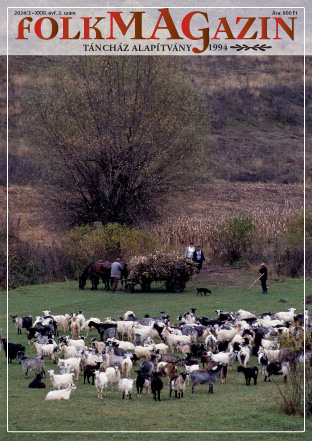Articles by Initial Letters
Női lélek, népi formák
„Szecesszió, Art Deco, Népművészet” – időszaki kiállítás a Hagyományok Házában
This exhibition explores the relationship between the great styles of the early 20th century (Secession – as we call it in Hungary – and Art Deco) and folk art from the unique perspective of female artists. The exhibition presents this period through the eyes of such female artists as Anna LESZNAI, THE ZSOLNAY SISTERS, GITTA MALLÁSZ, Mariska UNDI, KATÓ LUKÁTS or Klára ZSINDELYNÉ TÜDŐS. These pivotal female figures were pioneers in their time. The common denominator in their art is that they all consciously turned to the research, processing and renewal of traditional folk art. We intend to evoke their mindset and professional activities with the help of some characteristic and exciting artefacts while presenting the connection between their lives and traditional art with the tools of story-telling.
Alongside their works, we will also put on display the artefacts guarded by the Hungarian Heritage House (HH) – Museum of Hungarian Applied Folk Art so that we reveal new perspectives for the HH collection, placing the featured works, artists and themes into the forefront. The objects in the HH collection will enter into a dialogue with the artefacts borrowed from public and private collections. Thus, the collection's significance will also become evident to the general public. The HH collection also focuses on female artists: peasant women making embroideries, who also marked an important milestone in the research of the ancient art of embroideries and the design of new motifs. Ilus KIRÁLY, Bori KIS JANKÓ Bori and Mrs József CSUHAI (née Erzsébet Pólik) were such women.
Alongside their works, we will also put on display the artefacts guarded by the Hungarian Heritage House (HH) – Museum of Hungarian Applied Folk Art so that we reveal new perspectives for the HH collection, placing the featured works, artists and themes into the forefront. The objects in the HH collection will enter into a dialogue with the artefacts borrowed from public and private collections. Thus, the collection's significance will also become evident to the general public. The HH collection also focuses on female artists: peasant women making embroideries, who also marked an important milestone in the research of the ancient art of embroideries and the design of new motifs. Ilus KIRÁLY, Bori KIS JANKÓ Bori and Mrs József CSUHAI (née Erzsébet Pólik) were such women.





